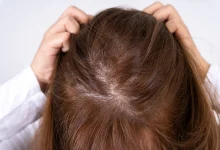Effective Ways to Quickly Get Rid of Dandruff
Dandruff is a common scalp condition characterized by the flaking of dead skin, often accompanied by itching and irritation. Although it is not harmful, dandruff can be a source of embarrassment and discomfort. Various factors contribute to its occurrence, including dry skin, sensitivity to hair products, fungal infections, and certain skin conditions like psoriasis and eczema. This article explores effective methods for quickly alleviating dandruff, ranging from home remedies to commercial treatments.
Understanding Dandruff
Before delving into treatment methods, it is essential to understand what causes dandruff. Dandruff occurs when the scalp becomes irritated and inflamed, leading to increased cell turnover. This rapid shedding of skin cells results in visible flakes. Common causes include:
-
Dry Skin: This is the most prevalent cause of dandruff. Cold weather and indoor heating can dry out the scalp, resulting in flakiness.
-
Oily Skin: Paradoxically, a greasy scalp can also lead to dandruff. The excess oil can cause skin cells to clump together, forming flakes.
-
Fungal Infection: Malassezia is a type of yeast that thrives on the scalp and feeds on the oils produced by hair follicles. An overgrowth can lead to irritation and dandruff.
-
Skin Conditions: Conditions such as seborrheic dermatitis, psoriasis, and eczema can cause persistent dandruff.
-
Sensitivity to Hair Products: Some individuals may react adversely to hair products, resulting in inflammation and flaking.
Understanding these causes helps in selecting the most effective treatment.
Quick Home Remedies for Dandruff
Several home remedies can help manage and reduce dandruff quickly. Here are some effective options:
-
Apple Cider Vinegar:
Apple cider vinegar (ACV) is known for its antibacterial and antifungal properties. It can help balance the scalp’s pH level and reduce yeast overgrowth. To use, mix equal parts of ACV and water and apply it to the scalp. Leave it on for 15-30 minutes before rinsing thoroughly. -
Tea Tree Oil:
Tea tree oil has potent antifungal properties and can effectively reduce dandruff caused by fungal infections. Dilute a few drops of tea tree oil in a carrier oil, such as coconut or olive oil, and massage it into the scalp. Leave it on for at least 30 minutes before washing your hair. -
Coconut Oil:
Coconut oil is an excellent moisturizer and has antimicrobial properties. It can soothe dry and irritated skin. Apply warm coconut oil to your scalp and leave it on for at least an hour before shampooing. -
Aloe Vera:
Aloe vera has soothing and anti-inflammatory properties. It can help relieve itchiness and reduce flakes. Apply fresh aloe vera gel directly to the scalp, leave it on for 30 minutes, and then wash your hair. -
Lemon Juice:
The acidity of lemon juice can help balance the scalp’s pH and reduce dandruff. Apply fresh lemon juice to the scalp, leave it on for 15 minutes, and rinse with a mild shampoo.
Commercial Treatments for Dandruff
If home remedies do not yield satisfactory results, various over-the-counter treatments can effectively control dandruff:
-
Anti-Dandruff Shampoos:
Shampoos specifically formulated to treat dandruff contain active ingredients designed to reduce flaking and itching. Some common ingredients include:- Zinc Pyrithione: This antifungal agent reduces the growth of fungi and bacteria.
- Selenium Sulfide: This ingredient slows down the production of skin cells and has antifungal properties.
- Ketoconazole: A powerful antifungal agent effective against Malassezia.
- Salicylic Acid: This helps exfoliate the scalp and reduce flakiness.
When using anti-dandruff shampoos, it’s essential to follow the instructions carefully. Generally, they should be applied to the scalp and left on for a few minutes before rinsing.
-
Medicated Scalp Treatments:
In more severe cases of dandruff, a dermatologist may recommend medicated treatments, including prescription-strength shampoos or topical corticosteroids. These can help reduce inflammation and control severe flaking.
Lifestyle Changes and Preventive Measures
In addition to immediate treatments, certain lifestyle changes can help manage and prevent dandruff effectively:
-
Maintain a Healthy Diet:
A balanced diet rich in vitamins and minerals, particularly zinc, B vitamins, and omega-3 fatty acids, can promote healthy skin and reduce the occurrence of dandruff. Foods such as nuts, fish, leafy greens, and whole grains are beneficial. -
Stay Hydrated:
Drinking enough water is vital for overall skin health, including the scalp. Proper hydration can help prevent dryness and flakiness. -
Manage Stress:
Stress can exacerbate skin conditions, including dandruff. Incorporating stress management techniques, such as yoga, meditation, or exercise, can improve overall scalp health. -
Avoid Harsh Hair Products:
Using hair products containing alcohol or strong fragrances can irritate the scalp. Opt for gentle, sulfate-free shampoos and conditioners. -
Regular Hair Washing:
Regularly washing your hair can help remove excess oil and dead skin cells. However, over-washing can lead to dryness, so finding a balance is crucial. -
Limit Heat Styling:
Excessive heat from styling tools can dry out the scalp. Limiting the use of blow dryers, straighteners, and curling irons can help maintain scalp moisture.
When to See a Dermatologist
While most cases of dandruff can be managed with home remedies and over-the-counter treatments, some individuals may require professional intervention. Consult a dermatologist if:
- Dandruff persists despite regular treatment.
- There are signs of infection, such as redness, swelling, or pus.
- You experience excessive itching that interferes with daily activities.
- Dandruff is accompanied by other skin conditions, such as psoriasis or eczema.
Conclusion
Dandruff is a common yet manageable condition that can be effectively treated with a variety of methods, ranging from home remedies to commercial products. Understanding the underlying causes and adopting preventive measures can significantly improve scalp health and reduce the occurrence of dandruff. Whether you opt for natural treatments like apple cider vinegar and coconut oil or choose over-the-counter anti-dandruff shampoos, addressing this issue promptly can lead to a healthier, more comfortable scalp. Ultimately, embracing a holistic approach that includes a balanced diet, stress management, and appropriate hair care practices will yield the best results in achieving dandruff-free hair.

